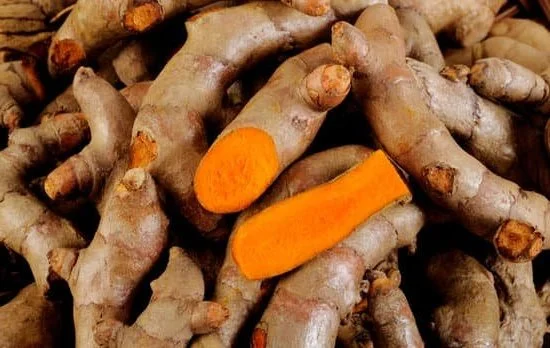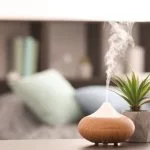Anxiety is a common issue among the elderly, impacting their overall well-being and quality of life. In this article, we will explore the question: does aromatherapy reduce anxiety in the elderly? We will delve into the science of aromatherapy, its effect on the brain, research findings, practical applications, case studies, and expert insights to provide a comprehensive understanding of this topic.
As individuals age, they may experience changes in their physical health, social relationships, and living situations, which can contribute to feelings of anxiety and stress. It is important to understand the prevalence of anxiety in the elderly population and explore non-pharmacological approaches to managing these symptoms. Aromatherapy has gained attention as a potential solution for reducing anxiety in older adults, and we aim to examine its effectiveness through an evidence-based approach.
Throughout this article, we will investigate how essential oils can be used to promote relaxation and alleviate anxiety symptoms in the elderly. By examining research findings, practical application tips, real-life case studies, and expert insights from healthcare professionals and aromatherapy practitioners, we hope to shed light on the potential benefits of aromatherapy for this demographic. Let’s delve into the world of aromatherapy and its impact on anxiety in the elderly.
The Science of Aromatherapy
Aromatherapy, a traditional practice with roots in ancient civilizations, utilizes essential oils to promote relaxation and well-being. The use of aromatic plant extracts is believed to have therapeutic effects on the mind and body, making it a popular alternative therapy for managing various health concerns, including anxiety.
The sense of smell plays a crucial role in how aromatherapy works – when essential oils are inhaled, they interact with the olfactory system and trigger responses in the brain that may help reduce anxiety levels.
The Science Behind Aromatherapy:
- Essential oils are highly concentrated plant extracts obtained through processes such as distillation or cold pressing. These oils contain natural compounds that contribute to their specific scents and potential therapeutic properties.
- The inhalation of essential oil molecules stimulates the olfactory receptors in the nose, which then send signals to the limbic system – a part of the brain involved in emotions, memories, and arousal. This direct pathway from scent receptors to the brain explains why certain smells can evoke strong emotional responses and influence mood.
- Some essential oils have been found to have calming effects on the nervous system, while others may have uplifting or energizing properties. For example, lavender oil is commonly used for its relaxing properties, while citrus oils like bergamot or lemon are associated with boosting mood and reducing stress.
Research Supporting Aromatherapy for Anxiety in the Elderly:
Several studies have investigated the potential benefits of aromatherapy for reducing anxiety in elderly individuals. Research findings suggest that certain essential oils may indeed have a positive impact on anxiety levels among older adults.
For example, a study published in the Journal of Clinical Nursing found that aromatherapy massage using lavender oil significantly reduced anxiety levels in elderly patients with chronic conditions. Another study published in Complementary Therapies in Medicine reported that inhaling rosemary and lemon essential oils over a 28-day period led to improved cognitive function and decreased levels of anxiety among older adults.
These findings support the idea that incorporating aromatherapy into daily routines for the elderly has the potential to positively impact their emotional well-being. By understanding how scent can influence mood and utilizing specific essential oils known for their calming effects, caregivers and healthcare professionals can explore non-pharmacological approaches to managing anxiety in aging populations.
Aromatherapy and Its Effect on the Brain
When it comes to the use of aromatherapy for anxiety in the elderly, understanding how scent can impact mood and anxiety levels is crucial. Aromatherapy involves the use of essential oils derived from plants to promote relaxation, improve mood, and reduce stress. The olfactory system plays a significant role in this process, as scents have the ability to trigger emotional and physiological responses in the brain.
The impact of aromatherapy on the brain can be attributed to the limbic system, which is responsible for regulating emotions, memory, and behavior. When essential oils are inhaled, they stimulate the olfactory nerve receptors in the nose, sending signals to the limbic system. This can lead to the release of neurotransmitters such as serotonin and dopamine, which are known for their mood-enhancing and calming effects.
Moreover, research has shown that certain essential oils have anxiolytic properties, meaning they possess anti-anxiety effects. For example, lavender oil has been found to reduce anxiety levels in various populations, including older adults. Other oils such as bergamot, chamomile, and rose have also demonstrated potential for promoting relaxation and alleviating stress. As a result, incorporating aromatherapy into the daily routines of elderly individuals may offer a non-pharmacological approach to managing anxiety and improving overall well-being.
- Aromatherapy stimulates olfactory nerve receptors
- Essential oils can lead to release of neurotransmitters like serotonin and dopamine
- Certain oils such as lavender have been found to reduce anxiety levels
Research Findings
Aromatherapy has gained attention as a potential non-pharmacological intervention for alleviating anxiety in the elderly. This alternative therapy involves the use of essential oils, which are derived from plants and known for their aromatic properties. The use of aromatherapy is based on the premise that certain scents can have a direct impact on the brain, influencing mood and emotional well-being. But what does the research say about its effectiveness in reducing anxiety in older adults?
Several studies have been conducted to investigate the potential benefits of aromatherapy for anxiety in the elderly. One study published in the Journal of Alternative and Complementary Medicine found that inhalation of lavender essential oil resulted in a significant reduction in anxiety levels among elderly participants. Another study in the International Journal of Geriatric Psychiatry reported that aromatherapy massage with essential oils led to improvements in anxiety and depression symptoms among older adults residing in nursing homes.
While these findings are promising, it is important to note that more research is needed to further support the use of aromatherapy as a means of reducing anxiety in the elderly. Additionally, it is crucial to consider individual differences in response to aromatherapy, as well as proper application and dosage of essential oils for maximum benefit.
Overall, the existing research suggests that aromatherapy may indeed have a role to play in addressing anxiety among older adults. However, further exploration and understanding of its mechanism of action are necessary to fully evaluate its potential as a complementary approach to promoting emotional well-being in the elderly population.
Practical Application
As the use of aromatherapy becomes more popular in addressing anxiety in the elderly, it is important to understand how to incorporate this practice into daily routines. Aromatherapy can be easily integrated into various aspects of an individual’s day, promoting relaxation and reducing feelings of anxiety. Here are some practical tips for incorporating aromatherapy into daily routines for the elderly.
Choosing the Right Essential Oils
When it comes to using aromatherapy for anxiety in the elderly, it is essential to select the right essential oils. Lavender, chamomile, and bergamot are known for their calming properties and are commonly used to reduce anxiety. These essential oils can be diffused throughout the home, added to a warm bath, or applied to pulse points for a soothing effect.
Creating a Calming Environment
Incorporating aromatherapy into the environment is key to promoting relaxation in the elderly. Using essential oil diffusers or room sprays can distribute calming scents throughout living spaces. Additionally, utilizing scented candles or sachets can also help create a peaceful atmosphere that helps reduce anxiety levels.
Incorporating Aromatherapy Into Daily Activities
Aromatherapy can be incorporated into various daily activities of the elderly to promote relaxation and reduce anxiety. For example, adding a few drops of essential oil to laundry detergent when washing linens and clothing can infuse them with calming scents. Additionally, using scented lotions or massage oils during daily skincare routines can provide therapeutic benefits.
By incorporating these simple tips, caregivers and healthcare professionals can help elderly individuals benefit from the potential calming effects of aromatherapy on anxiety levels. With careful consideration and proper application, aromatherapy can become an integral part of daily routines for promoting mental well-being in the elderly population.
Case Studies
Aromatherapy has been increasingly recognized for its potential to reduce anxiety and promote relaxation, particularly in the elderly population. Case studies have provided real-life examples of individuals who have benefitted from the use of essential oils to alleviate symptoms of anxiety and improve overall well-being.
One such case involved an elderly woman residing in a care facility who experienced high levels of anxiety due to the transition into a new living environment. By incorporating lavender essential oil into her daily routine through diffusers and topical application, she reported feeling calmer and more at ease within a few weeks. This simple addition of aromatherapy not only improved her mood but also enhanced her quality of life as she adjusted to the changes in her living situation.
In another case, an older gentleman with generalized anxiety disorder found relief from his symptoms by using chamomile essential oil. He regularly applied the oil topically and also utilized it in a personal inhaler throughout the day. Over time, he noticed a significant reduction in feelings of nervousness and restlessness, leading to improved sleep and a greater sense of calmness during daily activities. These cases highlight how aromatherapy can play a valuable role in addressing anxiety among the elderly population.
Furthermore, these real-life examples demonstrate that aromatherapy can serve as a non-pharmacological approach to reducing anxiety in the elderly. By incorporating specific essential oils into their daily routines, older individuals may experience tangible benefits for their mental well-being without relying solely on medication. As such, it is important for healthcare professionals and caregivers to consider the potential of aromatherapy as a complementary strategy for managing anxiety in this demographic.
Expert Insights
Healthcare Professional Perspective
In speaking with healthcare professionals about the use of aromatherapy to reduce anxiety in the elderly, there is a general consensus that while it may not be a cure-all, it can certainly be a beneficial complementary therapy. Many professionals note that aromatherapy can help create a calming environment for elderly individuals, which can in turn lead to reduced anxiety levels. Additionally, some healthcare professionals recommend certain essential oils, such as lavender or chamomile, for their known relaxing properties.
Aromatherapy Practitioners’ Viewpoint
Aromatherapy practitioners emphasize the importance of using high-quality essential oils and proper techniques when administering aromatherapy to the elderly. They stress the need for individualized approaches, as some scents may be more triggering than relaxing for certain individuals. Furthermore, these practitioners often work closely with elderly clients to identify specific scents that resonate with them personally and bring them a sense of comfort and relaxation.
Collaborative Approaches
Both healthcare professionals and aromatherapy practitioners highlight the potential benefits of collaborating on holistic care plans for the elderly. By combining traditional medical interventions with non-pharmacological approaches like aromatherapy, they believe there is great potential for reducing anxiety in this demographic. This collaborative approach recognizes the value of addressing mental health concerns through various means and tailoring treatments to individual needs.
Conclusion
In conclusion, the use of aromatherapy as a non-pharmacological approach to reducing anxiety in the elderly shows great potential. The science behind aromatherapy and its effect on the brain demonstrates that essential oils can promote relaxation and positively impact mood and anxiety levels. Research findings have shown promising results, indicating that incorporating aromatherapy into daily routines for the elderly can be beneficial in reducing anxiety.
Practical application tips, such as diffusing calming scents or using massage oils with soothing fragrances, offer tangible ways for caregivers and healthcare professionals to implement aromatherapy for their elderly patients. Real-life case studies also provide evidence of the positive effects of aromatherapy on anxiety in the elderly, further supporting its potential as a complementary therapy.
Moreover, expert insights from healthcare professionals and aromatherapy practitioners emphasize the value of utilizing aromatherapy alongside traditional treatment methods to address anxiety in the elderly. With further research and continued exploration of different essential oils and application methods, aromatherapy may become an increasingly recognized and accepted approach to promoting emotional well-being in older adults.
Overall, while more studies are needed to fully understand the extent of its benefits, it is clear that aromatherapy has a role to play in enhancing the quality of life for the elderly by reducing anxiety through natural means.
Frequently Asked Questions
How Can I Help My Elderly With Anxiety?
Helping an elderly person with anxiety can involve various approaches. Providing a supportive and understanding environment is crucial, along with encouraging open communication about their feelings. Engaging in calming activities like gentle exercise, meditation, or simply spending quality time together can also be beneficial in reducing their anxiety.
What Are the Benefits of Aromatherapy for the Elderly?
Aromatherapy has several potential benefits for the elderly, such as promoting relaxation and reducing stress levels. Certain scents like lavender, chamomile, and bergamot have been found to have a calming effect on individuals, which can be especially helpful for seniors who may experience heightened anxiety or agitation.
Does Aromatherapy Actually Work for Anxiety?
While individual responses to aromatherapy can vary, there is evidence to suggest that certain essential oils used in aromatherapy can have a positive impact on anxiety. Studies have shown that inhaling specific scents can help reduce anxiety levels and improve overall mood.
However, it’s important to note that aromatherapy may not work for everyone and should be used as part of a holistic approach to managing anxiety.

Are you looking for a natural way to improve your health and wellbeing?
If so, aromatherapy may be the answer for you.






